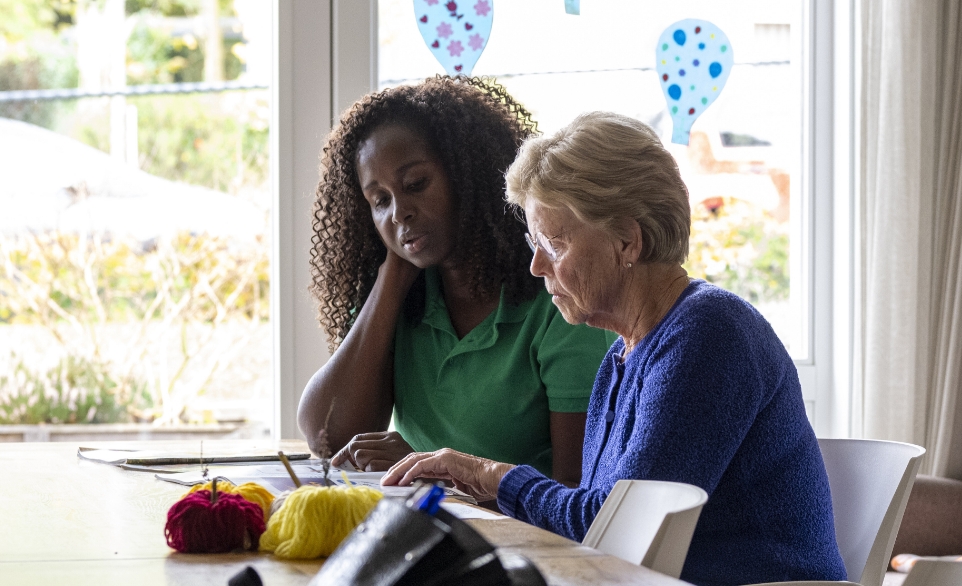
Carer Academy | Written by Jill Hudson
You’re not causing trouble. You’re doing the right thing.
In care, silence can be dangerous — and speaking up can save someone’s safety, dignity, or even life.
Most carers know how to provide support.
But not everyone is confident when it comes to raising concerns.
It can feel awkward. Risky. Even scary.
You might worry about upsetting a colleague, getting someone in trouble, or being labelled “a problem.”
But here’s what I want you to know, from the very beginning:
If something doesn’t feel right — it’s always worth saying something.
And if you raise a concern with care and professionalism, you’re showing leadership of the highest kind.
This blog will help you:
- Understand the difference between whistleblowing, safeguarding, and policy breaches
- Learn how to raise concerns with confidence (and without fear)
- Know exactly who to go to and what to say
- Download a printable script to support you in real-time conversations
What Counts as “A Concern”?
You don’t need to witness something illegal to raise a red flag.
A concern could be:
- A client seems unusually withdrawn, scared, or bruised
- A colleague isn’t following hygiene or medication protocol
- Someone talks in a way that feels disrespectful or unsafe
- You’ve seen something that goes against the service’s values, policies, or training
- You notice care logs being falsified or incomplete
If your gut says, “That doesn’t feel right,” — listen to it.
What’s the Difference?
Whistleblowing, Safeguarding, or Policy Breach?
Let’s break them down:
-
Safeguarding Concern
This is when a person’s safety, dignity, or wellbeing is at risk — often involving abuse, neglect, or exploitation.
Example:
A carer shouting at a client.
Unexplained injuries.
Financial abuse.
Neglect of hygiene or medication.
Report immediately to the Safeguarding Lead or your manager. In serious cases, contact your local safeguarding authority.
-
Policy or Protocol Breach
This is when someone breaks the rules or standards that keep care safe and consistent — even if no one is immediately harmed.
Example:
Not washing hands between clients.
Using incorrect PPE.
Skipping documentation.
Turning up late to visits regularly.
Raise this with your team leader, manager, or quality lead — it can often be addressed through training and supervision.
-
Whistleblowing
This is when you raise a concern about wrongdoing in your organisation, especially if:
- Management ignores it
- You fear retaliation
- You need to go above someone’s head to protect clients or colleagues
You are legally protected when whistleblowing.
You can go to:
- Your head office
- CQC (Care Quality Commission)
- Your local council safeguarding team
How to Raise a Concern Professionally
You don’t need to have proof. You just need to raise your concern factually, calmly, and clearly.
Keep it simple:
- What did you see or hear?
- When and where did it happen?
- Why are you concerned?
- Has it happened before?
The Role of the Designated Safeguarding Lead (DSL)
Every care provider should have a DSL — this is the person responsible for:
- Receiving safeguarding concerns
- Recording and investigating issues
- Escalating to social services or other agencies when needed
- Supporting you through the process
You should know who your DSL is — and how to contact them.
If you’re unsure, ask your manager or check your staff handbook.
If your DSL doesn’t take action and you’re still worried — you’re allowed to escalate.
Scripts: What to Say & Who to Go To
Raising a concern can be emotional — so here’s a calm, professional script to support you:
To Your Line Manager:
“Hi [Name], I just wanted to raise something I saw during my shift that’s been on my mind. It may be nothing, but I felt uncomfortable and think it’s worth looking into. Can I talk it through with you?”
If It’s an Urgent Safeguarding Concern:
“Hi [DSL Name], I need to raise a safeguarding concern. [Client] showed signs of distress/bruising/unusual behaviour today. I’ve logged it, but I’d like to ensure it’s taken seriously. Can we discuss next steps?”
If You Need to Whistleblow:
“I’ve raised this before and nothing has changed. I’m worried this is putting people at risk, and I feel I need to speak with someone outside the immediate team. Can you advise who I can escalate to confidentially?”
Tips to Protect Yourself
- Keep a record of what you reported, when, and who you told
- Stick to facts, not gossip or feelings
- Avoid discussing concerns with colleagues outside of official processes
- If you’re scared to speak up, use email or a written note first
- Know that you are protected by law when you raise genuine concerns
Download: “Speak Up with Confidence” Printable Script Sheet
Includes:
- Phrases for reporting concerns
- Step-by-step escalation guide
- Who to contact and when
- Local safeguarding contacts (space to fill in)
- Whistleblowing hotline info
Keep it in your pocket, your staff folder, or as a note on your phone. It’s your safety net when your voice feels shaky.
Watch Our Free Carer Academy Playlist:
“Speaking Up & Staying Strong”
Inside this video series, we cover:
- Real stories from carers who spoke up — and what happened next
- How to stay calm in emotional situations
- What to do when your concern is ignored
- The difference between “tattling” and true safeguarding
Let’s take the fear out of doing the right thing.
Recap: What to Do When Something Feels Off
- Notice it – Don’t brush it off
- Write it down – Be factual and specific
- Report it – Start with your team lead or DSL
- Escalate it – If nothing is done or it’s serious
- Protect yourself – You are not alone, and you are legally supported
Final Thought: You’re Not Just a Carer — You’re a Guardian
The care sector only works when the people inside it feel empowered to speak.
You are not being difficult for raising concerns. You are being a leader.
We need more carers who are brave enough to speak — and supported enough to do it safely.
Let’s create a culture where safety comes first, voices are heard, and concerns lead to change.
You’re not alone. You’re doing the right thing.
With care and courage,
Jill Hudson
Tutor, Carer Academy | Founder, Big Sister













